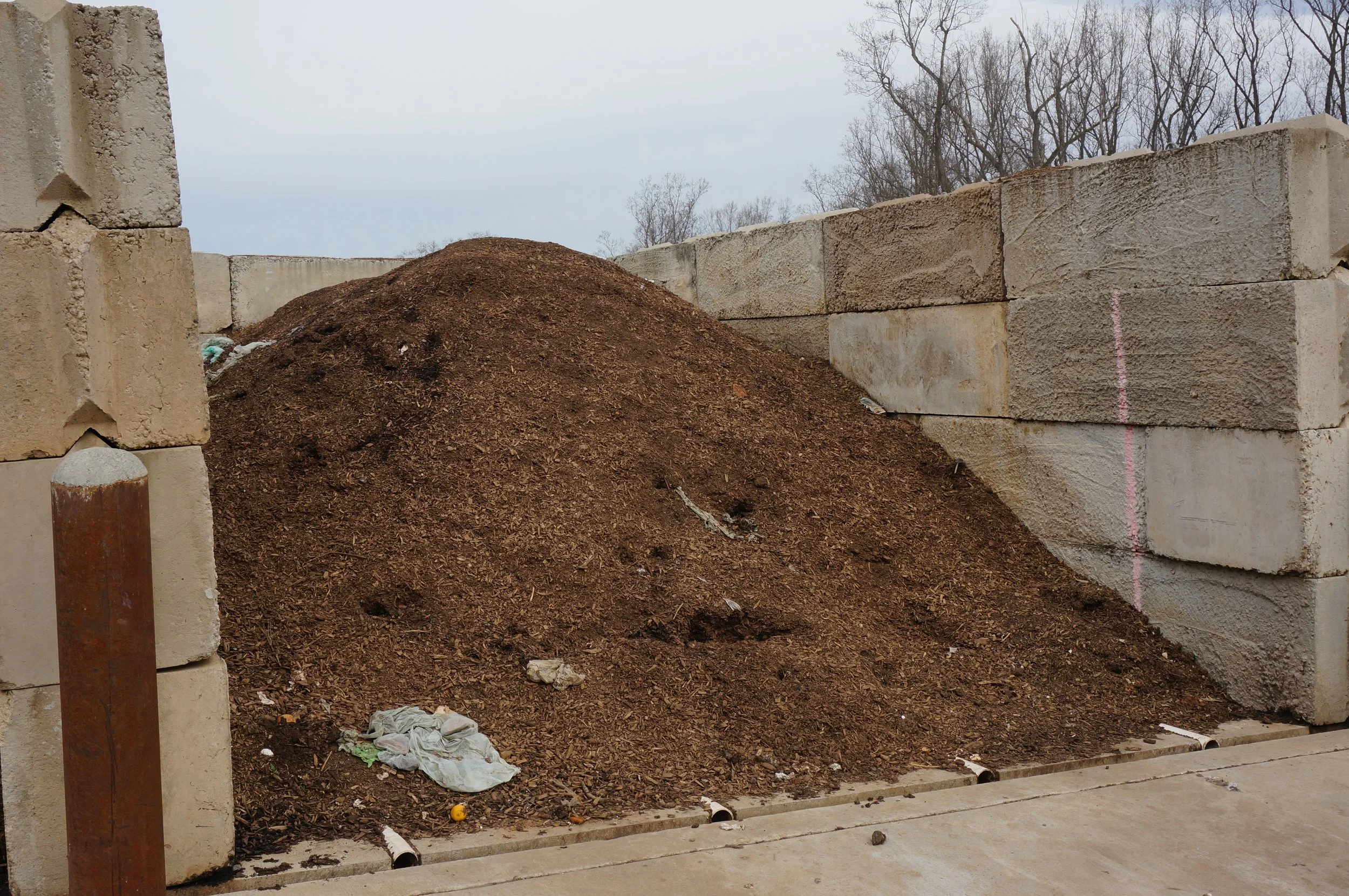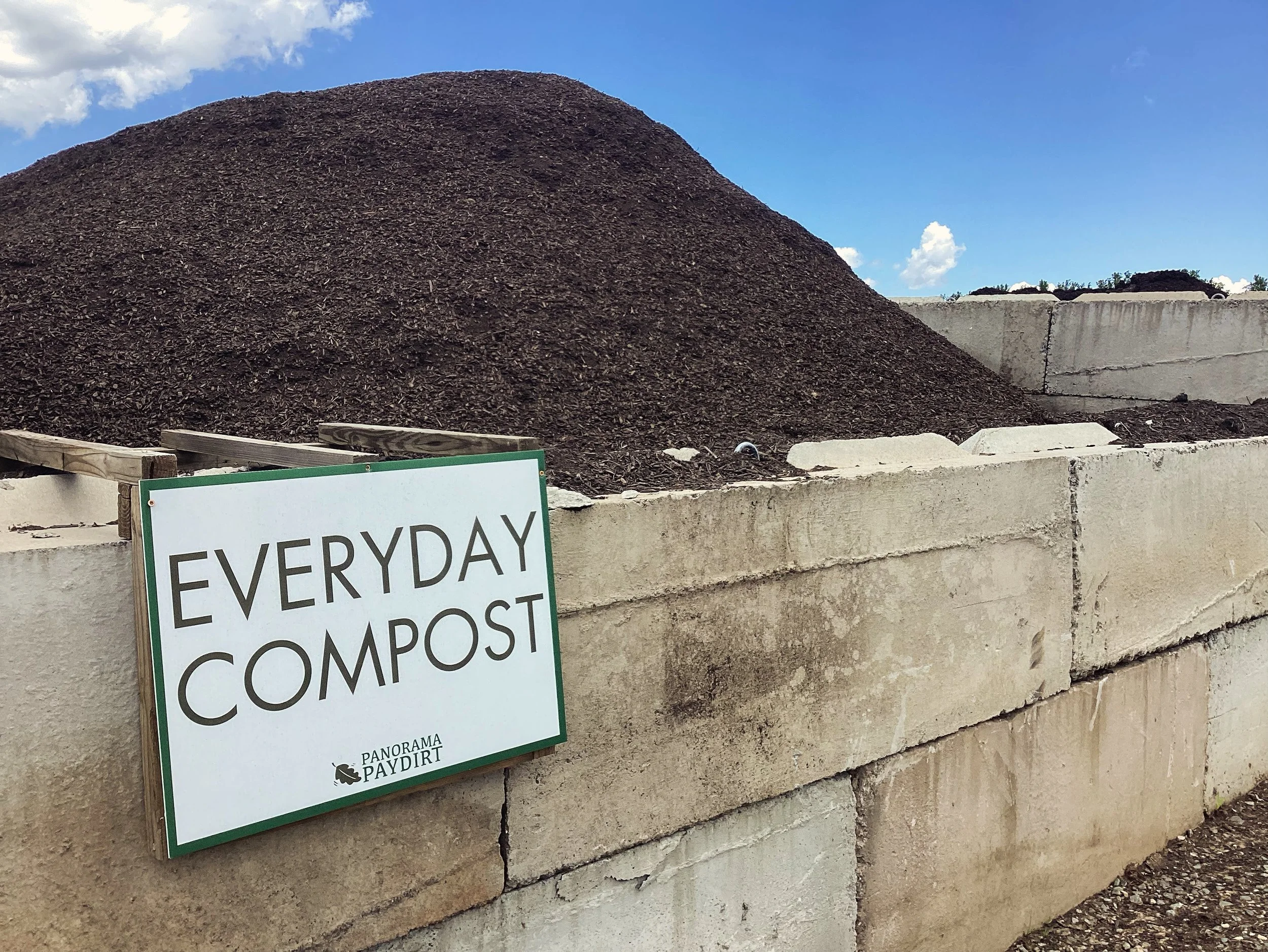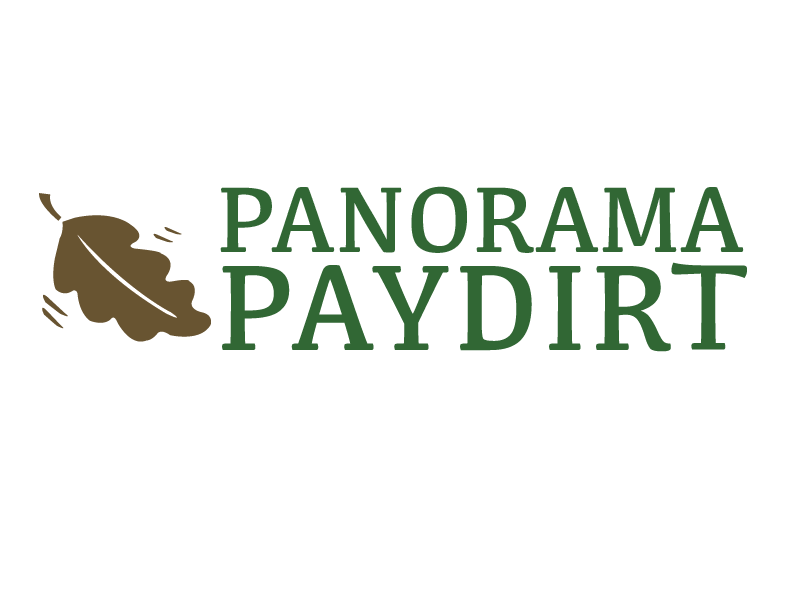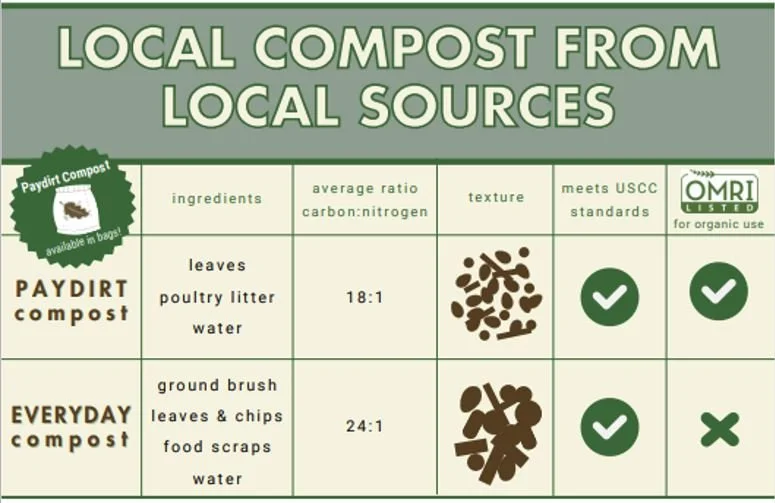EVERDAY COMPOST
Food scrap based compost
Environmental Impact:
Food waste not only provides the crucial nitrogen source for the composting process, it also helps the environment by diverting organic matter from the landfill. Keeping carbon in the ground and nitrogen in the air is the most important thing we can do to help mitigate climate change.
How can I recycle my food scraps?
Recycling food scraps is easily done at home. Just divert all organic food waste into a container separate from kitchen trash can. While we are not currently accepting food waste from the general public, it will eventually end up at our site to be processed if you drop it at the McIntire Recycling Center located at 611 McIntire Rd. in Charlottesville.
Visit the Rivanna Solid Waste Authority website for more information on drop off, regulations, and more.
What is Everyday Compost?
Organics Recycling is our mission, and our expansion into food scrap processing reflects this goal. We partner with local food scrap collection outfits, who in turn partner with local businesses to streamline the recycling process.
Our Everyday Compost is made with a diverse selection of feedstocks including local food scraps, mulch fines, wood chips, leaves, and other organic matter, using a combination of aerated static piles and windrow composting to create a balanced recipe.
THE PROCESS









How does it compare?
Check out our Compost guide for more details!




